5 Set It and Forget It Dividend Aristocrats for a Lifetime of Income
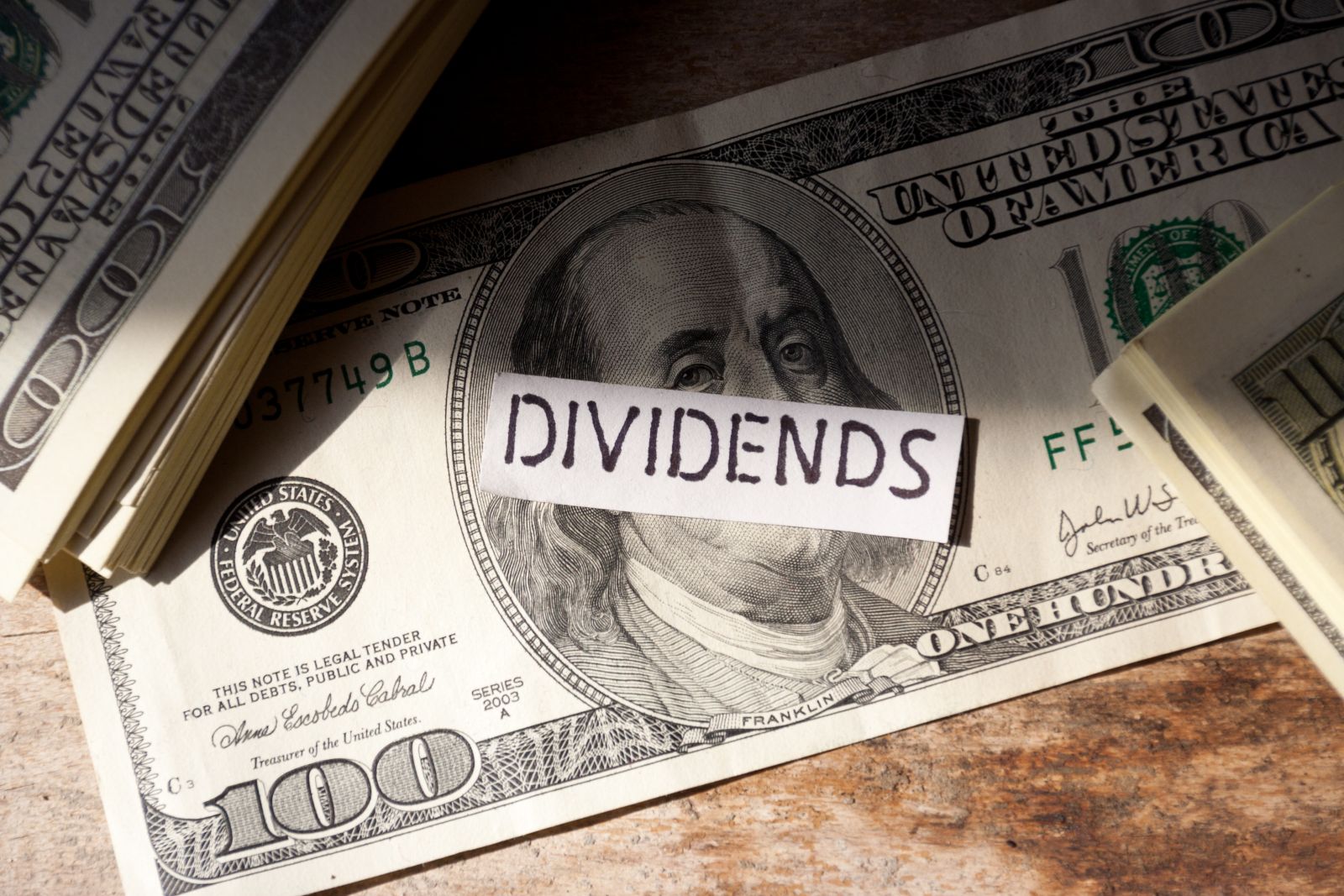
Dividend Kings: those elite companies with half a century of uninterrupted payout growth — remain perennial investor favorites. My recent piece which covered my highest-rated Kings, drew the strongest interest among my published content to date, underscoring an appetite for reliable income in a volatile market.
Today, I’m turning to a slightly different peer group: the Dividend Aristocrats. These are S&P 500 companies that have raised their dividends for at least 25 consecutive years. While not all carry eye-popping yields, their combination of steady growth, global scale, and durable business models has made them some of the most reliable long-term income generators in the market.
With interest rates in flux and investors seeking stability, Aristocrats stand out as a rare group that can deliver both consistency and upside. Using Barchart’s Stock Screener and Wall Street’s consensus ratings, I’ve identified five Aristocrats analysts like best right now — plus a quick guide on how you can spot them yourself.
How I Came Up With My List
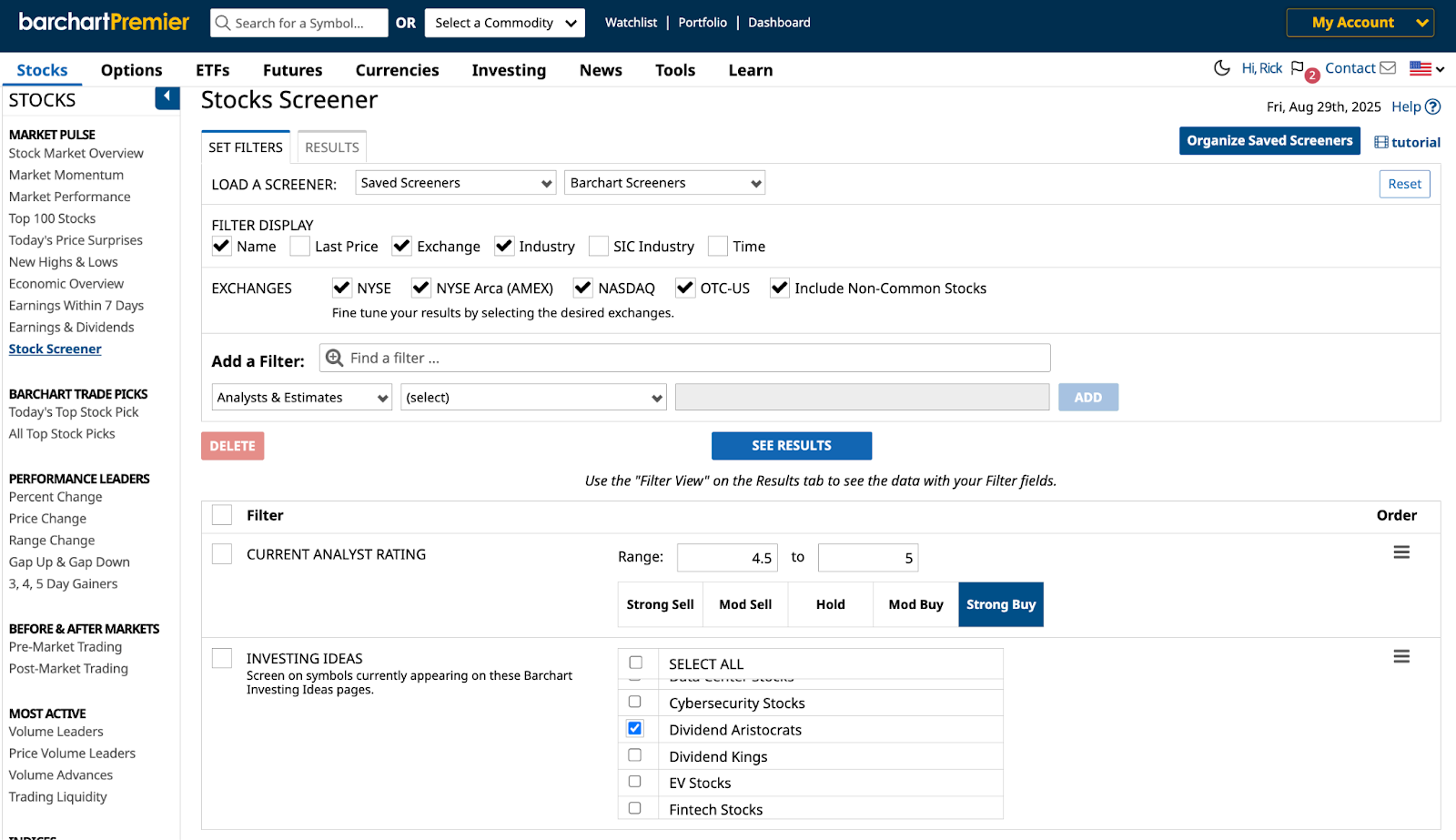
As usual, I started the analysis using Barchart’s Stock Screener. While I normally use one of my premade watchlists as a filter, today, I’m going to change it up a little and use one of Barchart’s own “Investing Ideas” while also hunting for “Strong Buy” ratings from Wall Street analysts.
The result? Five Dividend Aristocrats - which I’ve arranged by analyst rating, lowest to highest.

With the results on screen, let’s have a look at each and the metrics to decide if they belong in your portfolio.
Nucor (NUE)
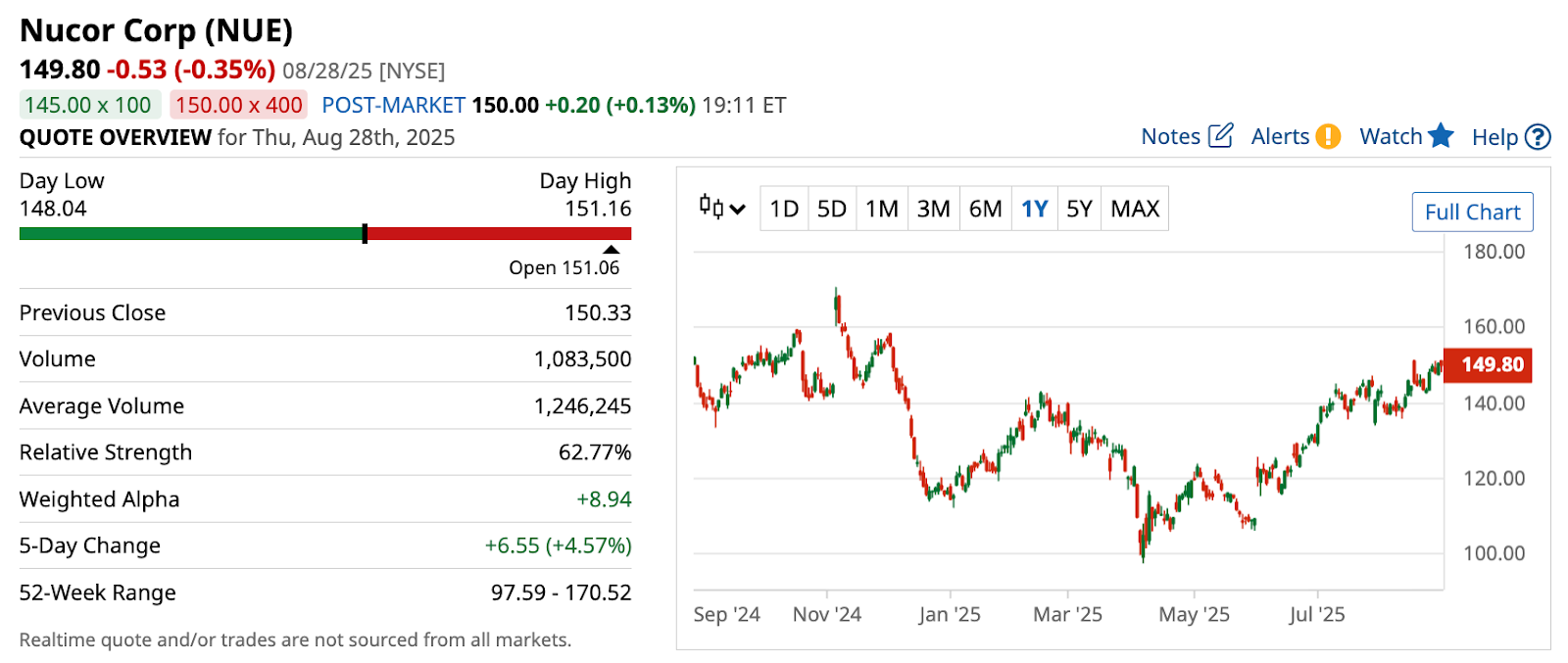
Founded in 1955. Nucor used to sell nuclear industry services, but after a few reorganizations in the company, it started producing steel in 1968. It went public in 1972. Today, Nucor is the largest steel producer and scrap recycler in North America, as one of the two primary suppliers of steel reinforcement for buildings, bridges, roads, and infrastructure.
Over the years, Nucor has maintained its dominance by acquiring other steel producers, like Birmingham Steel in 2002 and Rytec Corporation in 2024.
The company’s second-quarter financials reported sales of $8.46 billion, increasing 5% from the same quarter last year. However, net earnings decreased 44% to $932 million.
In terms of dividends, Nucor has increased it for each of the last 52 years to where it is today: $2.19 per share annually, translating to an approximate 1.46% forward yield.
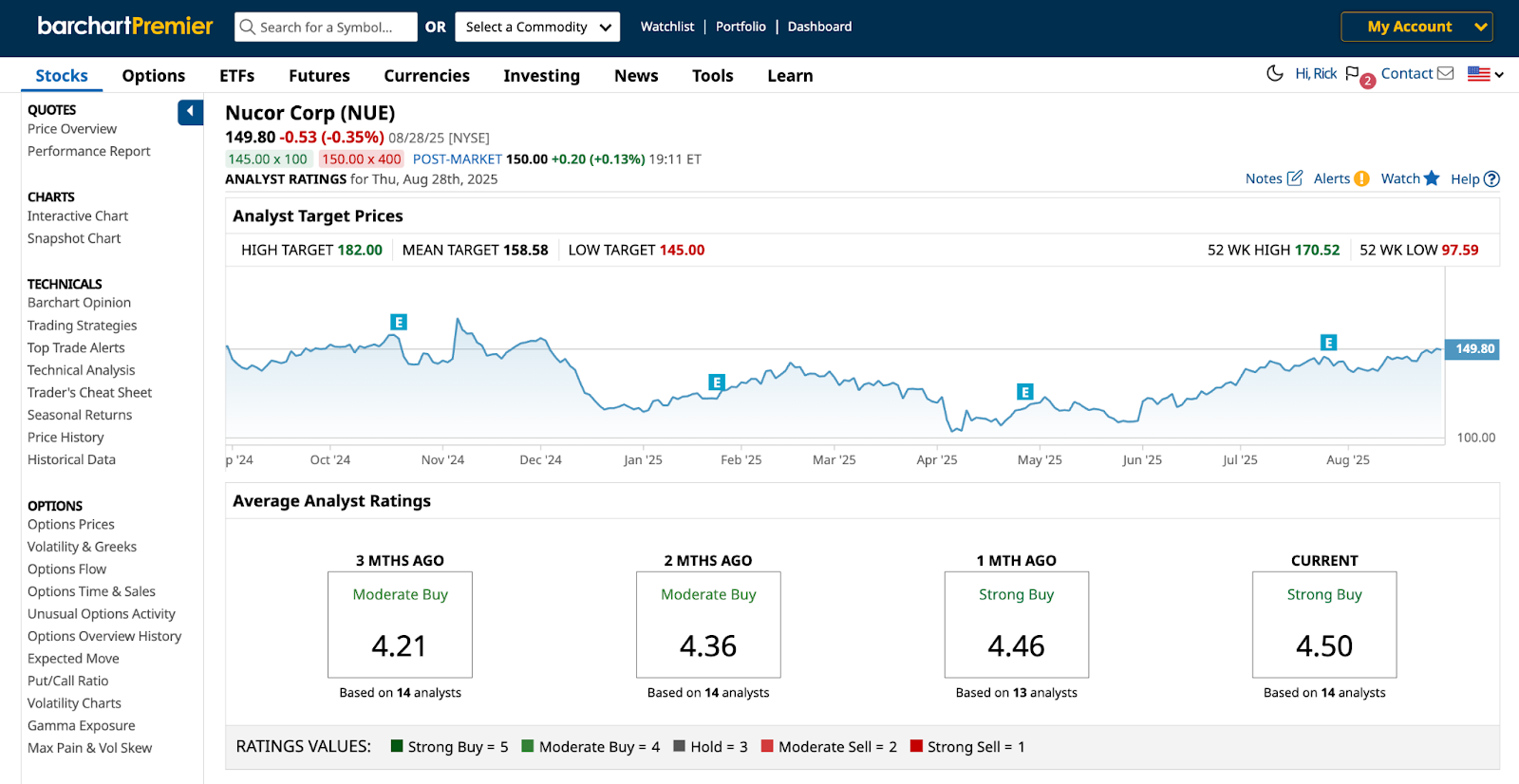
A consensus among 14 Wall Street analysts is a “Strong Buy” rating on NUE stock. A high target price of $182 has been set, suggesting as much as 21% upside from today's prices.
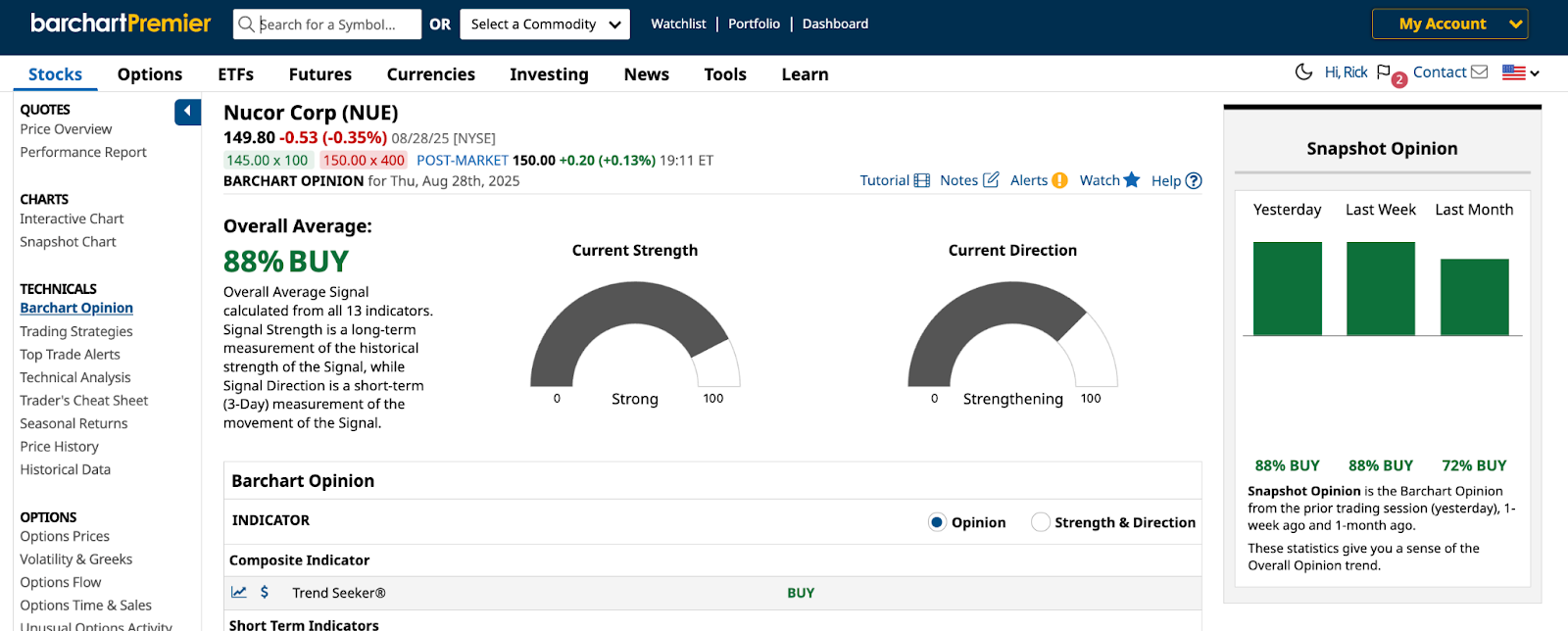
Barchart Opinion ratings have an overall average of 88% buy for NUE, combined with high strength and average direction, indicating significant short-term confidence that the stock will continue to grow.
West Pharmaceutical Services (WST)
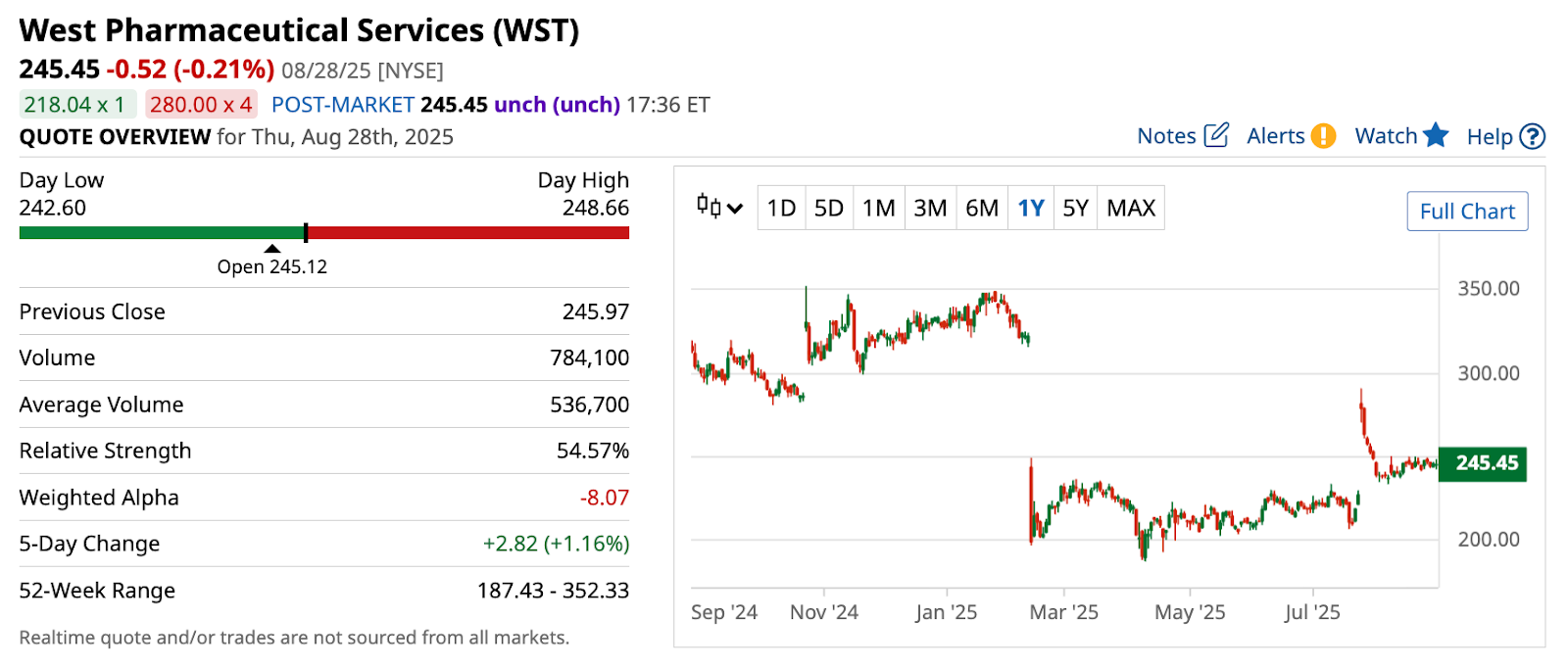
The second company on my list of dividend stocks is West Pharmaceutical Services, a leading manufacturer of components and systems for injectable medicines. Their products include stoppers and seals, syringes and cartridge components, and containment and delivery systems for injectable medicines.
The company’s second-quarter financials reported net sales of $766.5 million, which rose 9.2% compared to last year, while net income also rose 17% to $131.8 million.
Now, investors probably won’t care so much about West’s $0.84 annual dividend (0.34% yield), despite the fact they’ve grown it for 33 consecutive years. However, it is a quality company and they have increased their dividend >30% over the past 5 years. Perhaps down the line, this will continue.
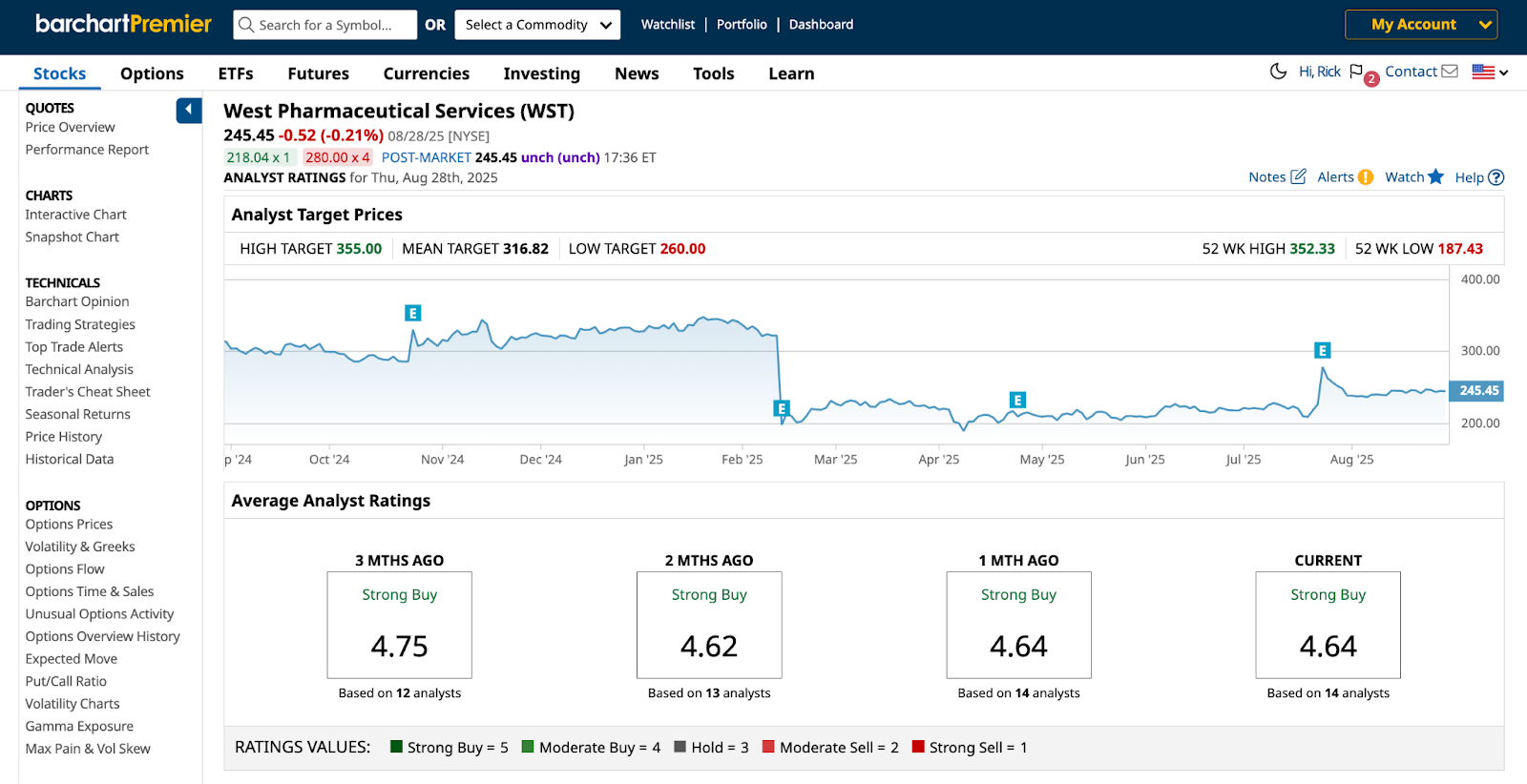
Based on a consensus among 14 Wall Street analysts, WST stock is a “Strong Buy”, consistent over the past three months. A high target price of $355 suggests as much as 44.6% upside over the next twelve months.
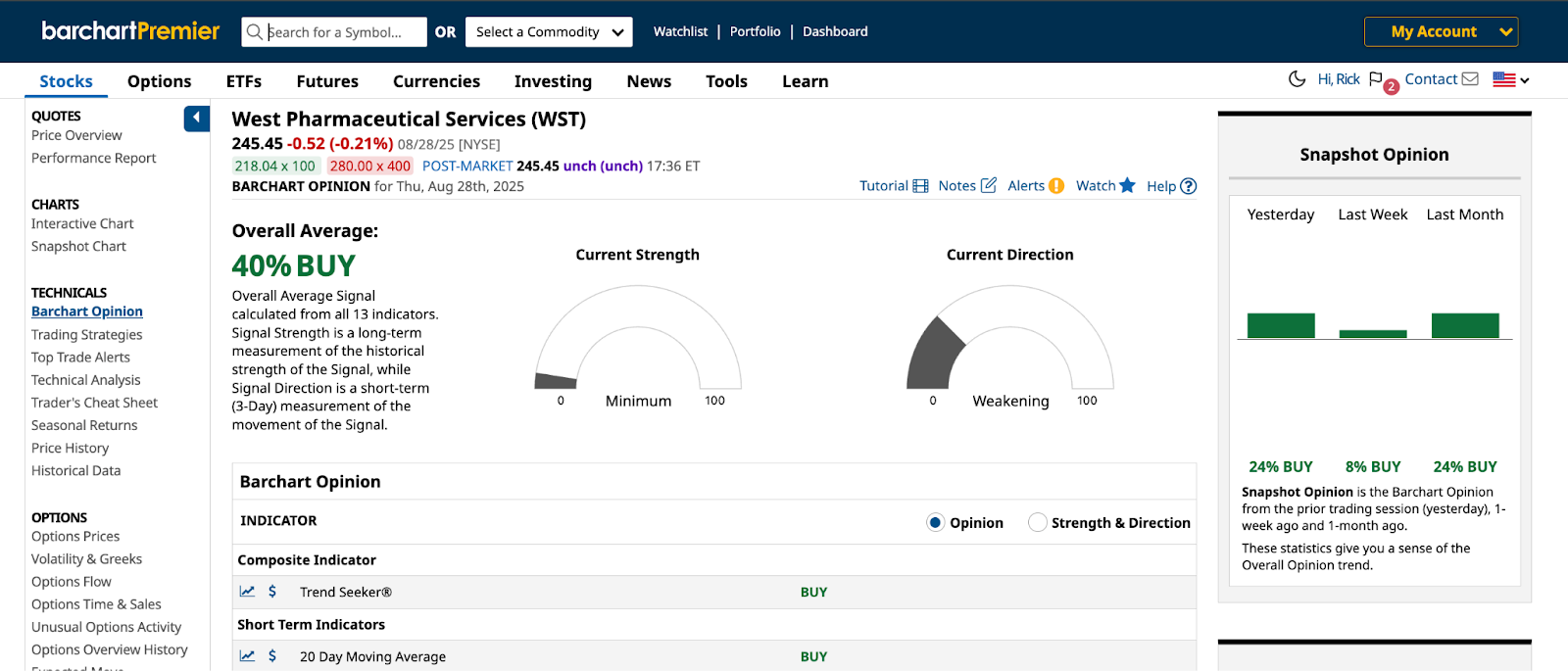
Meanwhile, Barchart Opinion has an overall average of 40% buy, with the weakest short-term outlook on maintaining its current direction.
S&P Global Inc (SPGI)
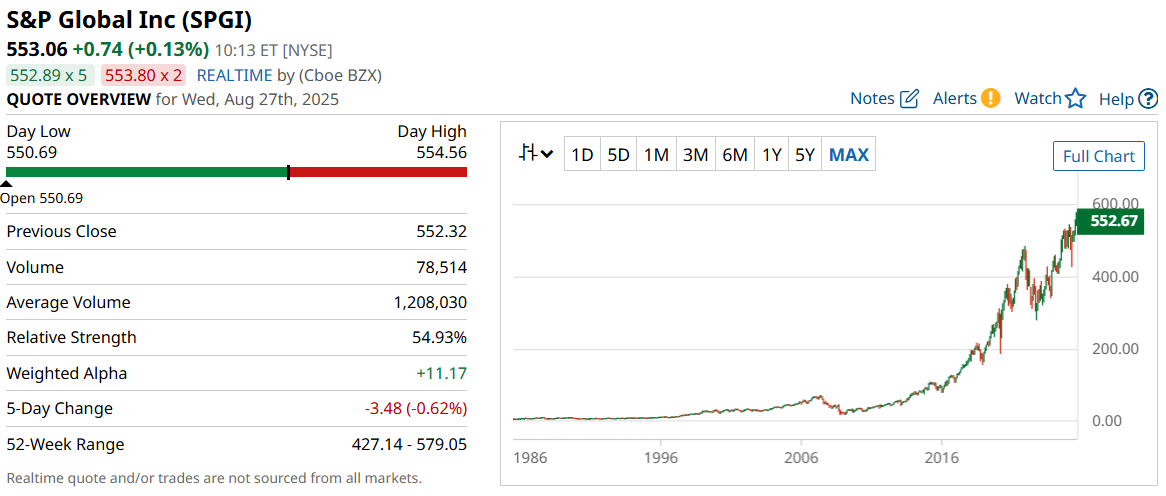
S&P Global Inc. offers financial information and analytics. It is the parent company of S&P Global Ratings, S&P Global Market Intelligence, and S&P Global Mobility, among others. It is also the majority owner of the S&P Dow Jones Indices.
S&P’s second-quarter financials reported a 6% increase in revenue compared to last year at $3.755 billion with net income rising 7% to $1.356 billion. The company pays $4.70 annually in dividends, translating to a low 0.85% yield.
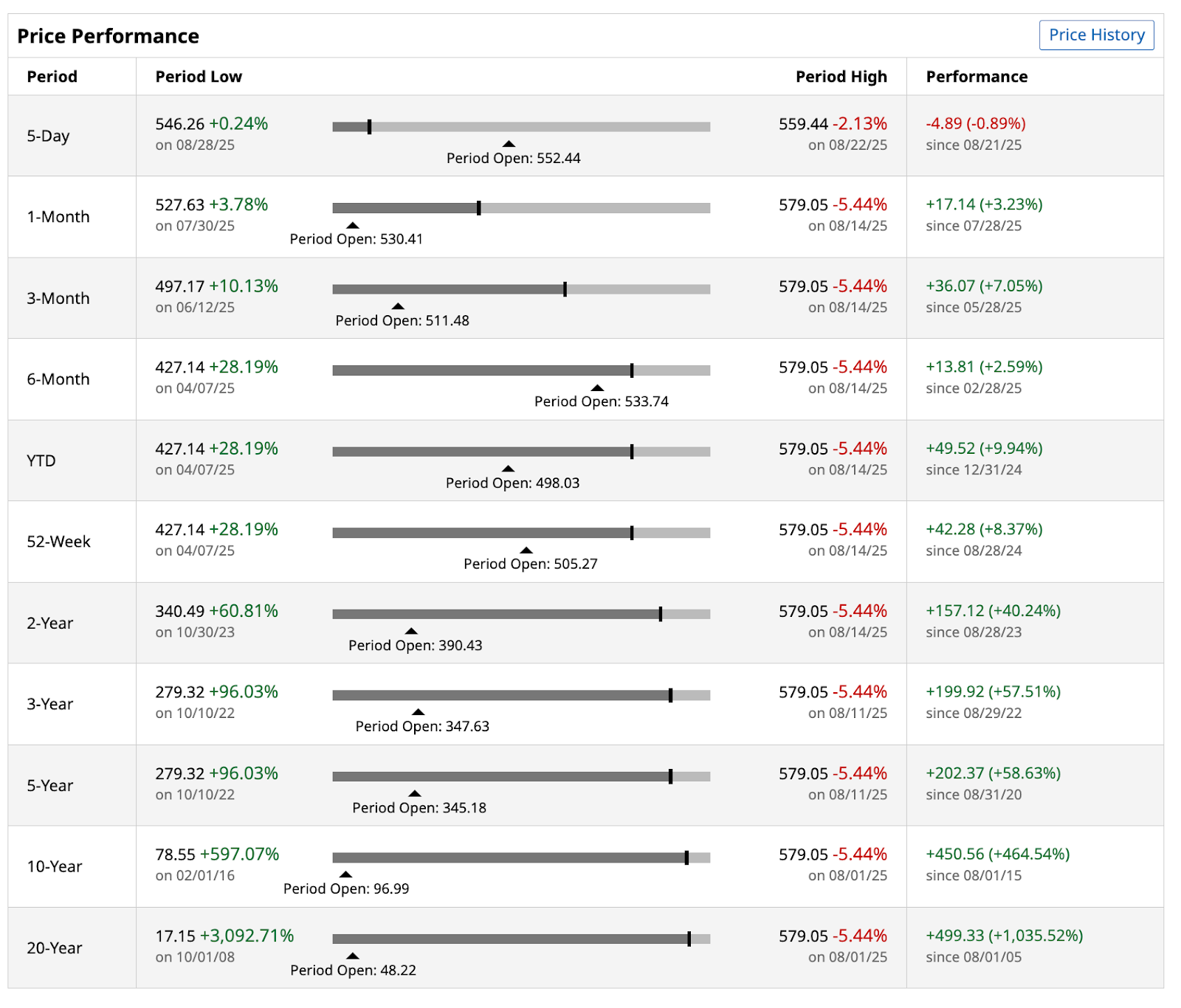
That said, stockholders over the years will be very pleased with the stock’s performance.
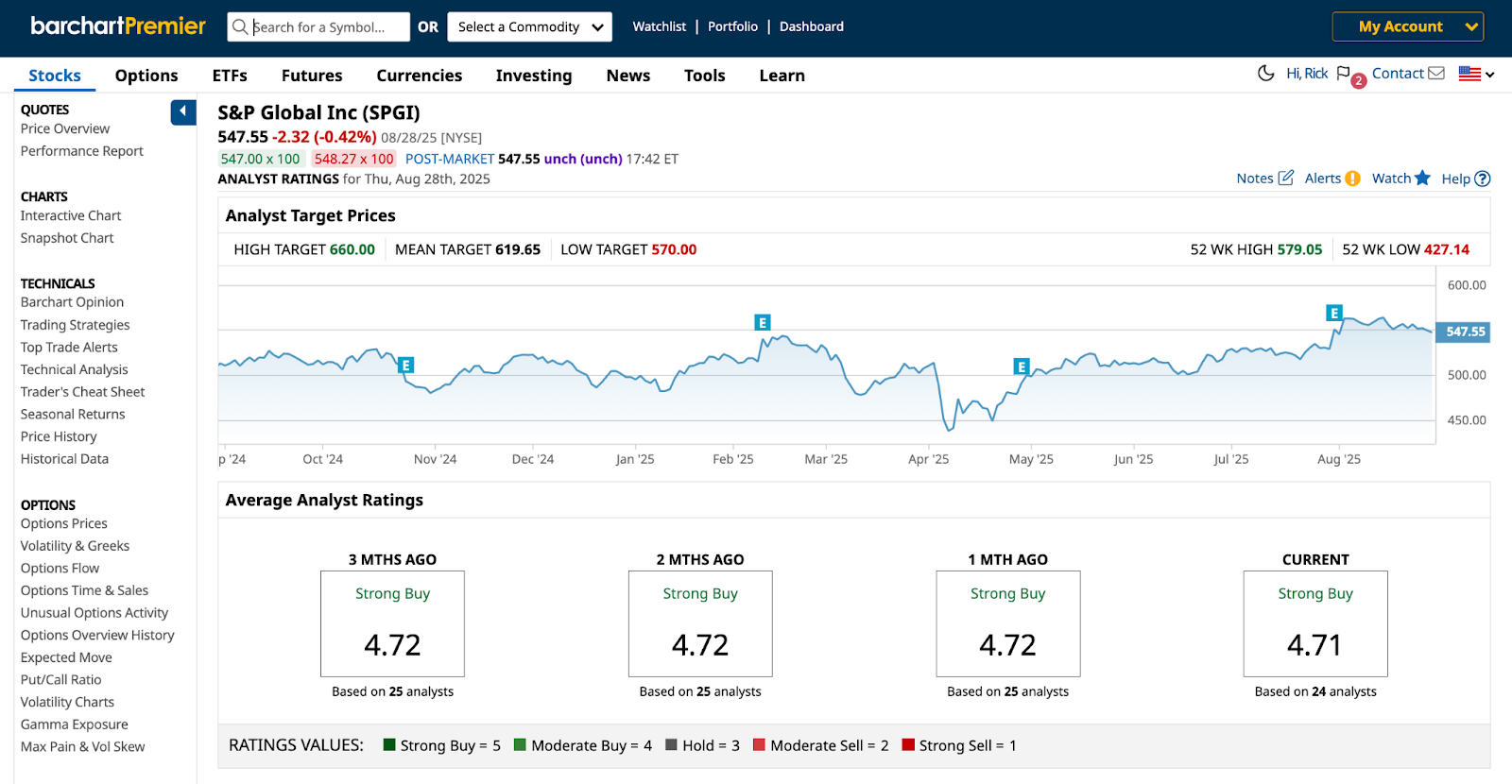
Currently, the stock has a consensus “Strong Buy” rating from 24 Wall Street analysts. This rating has been consistent for the past three months, and suggests as much as 19.37% upside from its current price.
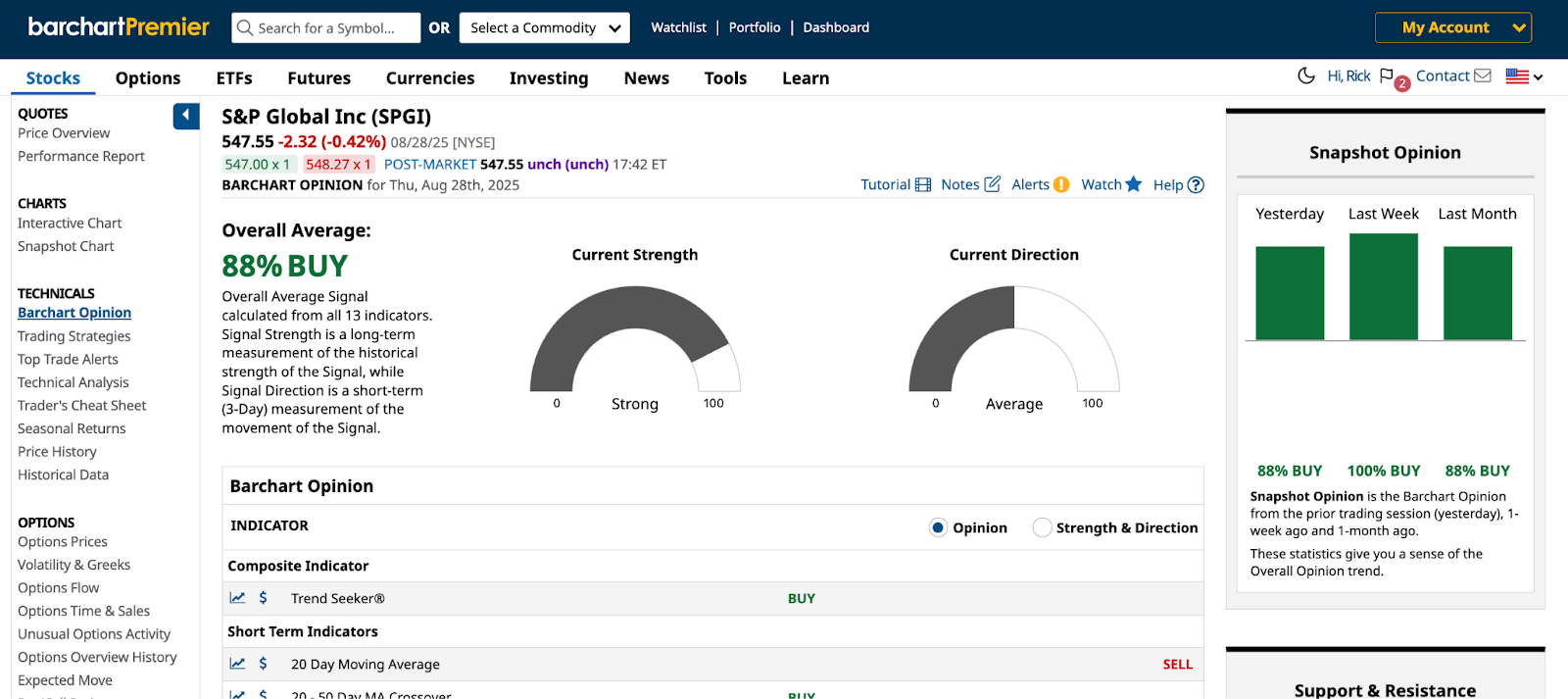
Barchart Opinion supports this rating, with an 88% buy recommendation and a strengthening short-term outlook. Both short and long-term indicators suggest that SPGI stock will continue to grow.
Coca-Cola Company (KO)
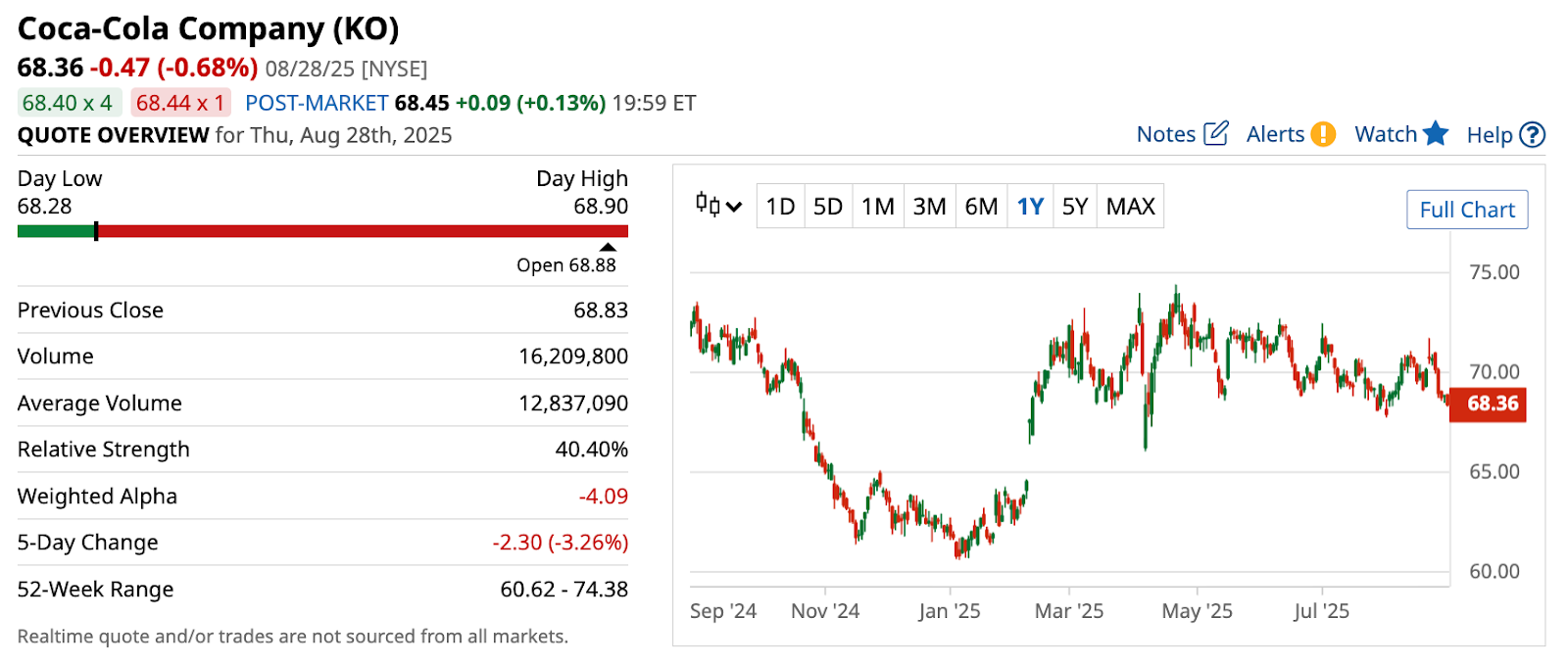
The Coca-Cola company is one of the largest beverage companies around, selling soft drinks, non-alcoholic beverage concentrates and syrups, and alcoholic beverages. Of course, its most recognizable product is Coca-Cola, or simply known as Coke.
The company’s second-quarter financials reported net revenue rising 1% to $12.5 billion compared to the same quarter last year. Net income, however, rose 58% to $3.2 billion. Out of that, Coca-Cola pays $1.99 annually, reflecting an annual dividend yield of 2.9%.
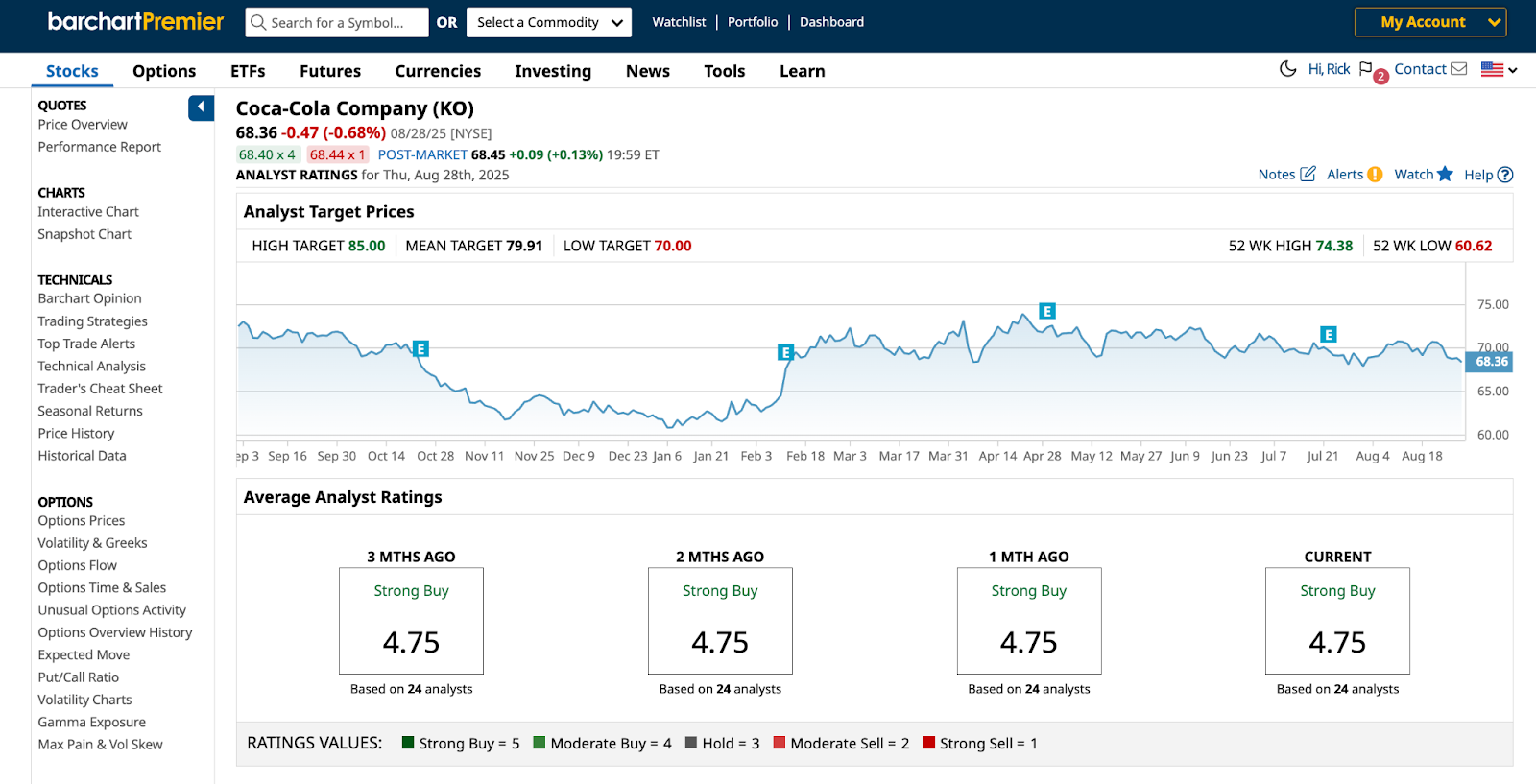
24 analysts rate Coca-Cola stock a “strong buy”, unchanged over the last three months, indicating its long-term bullish outlook. If the stock reaches its high target, it would mean 24% upside from its current stock price.
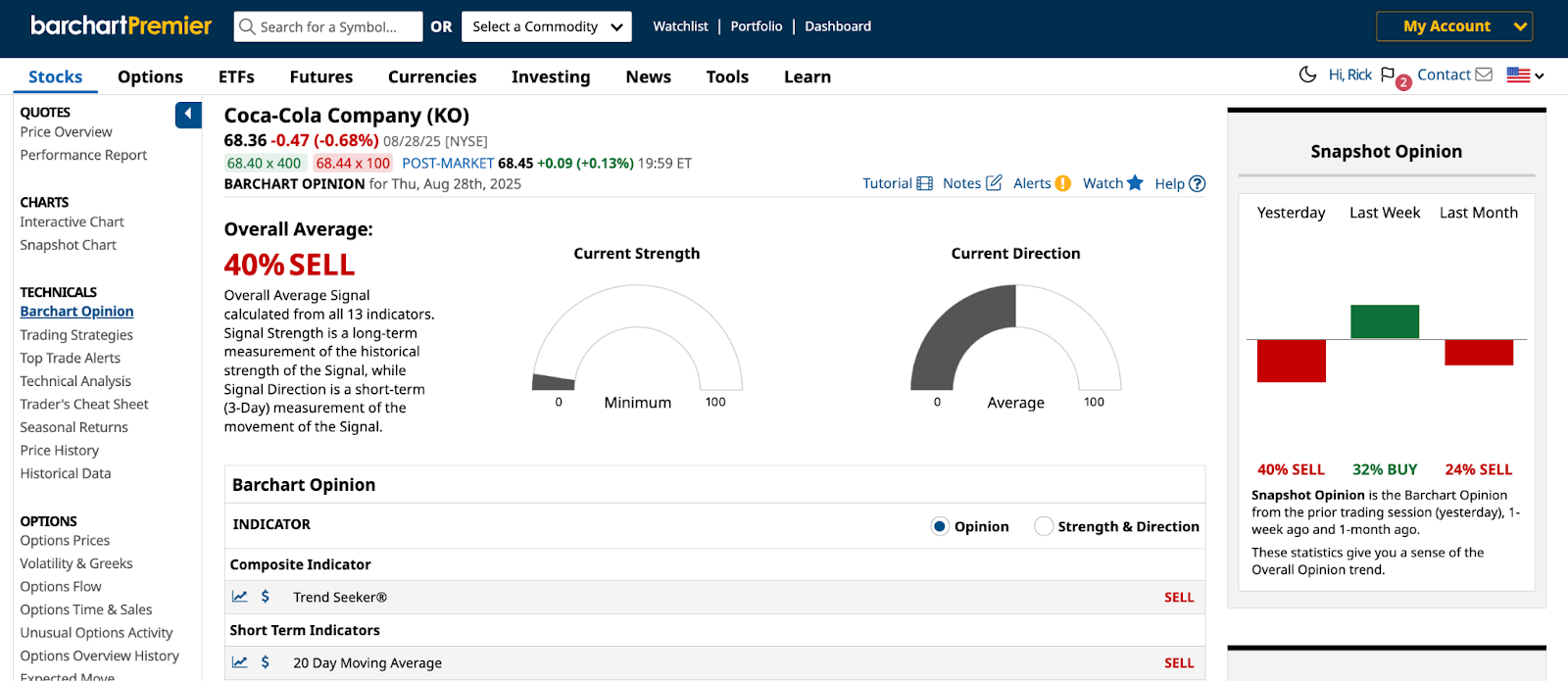
However, KO stock’s short-term performance has been weak. Barchart Opinion has a 40% sell rating on the stock, with an average short-term outlook with minimum strength.
Walmart Inc (WMT)
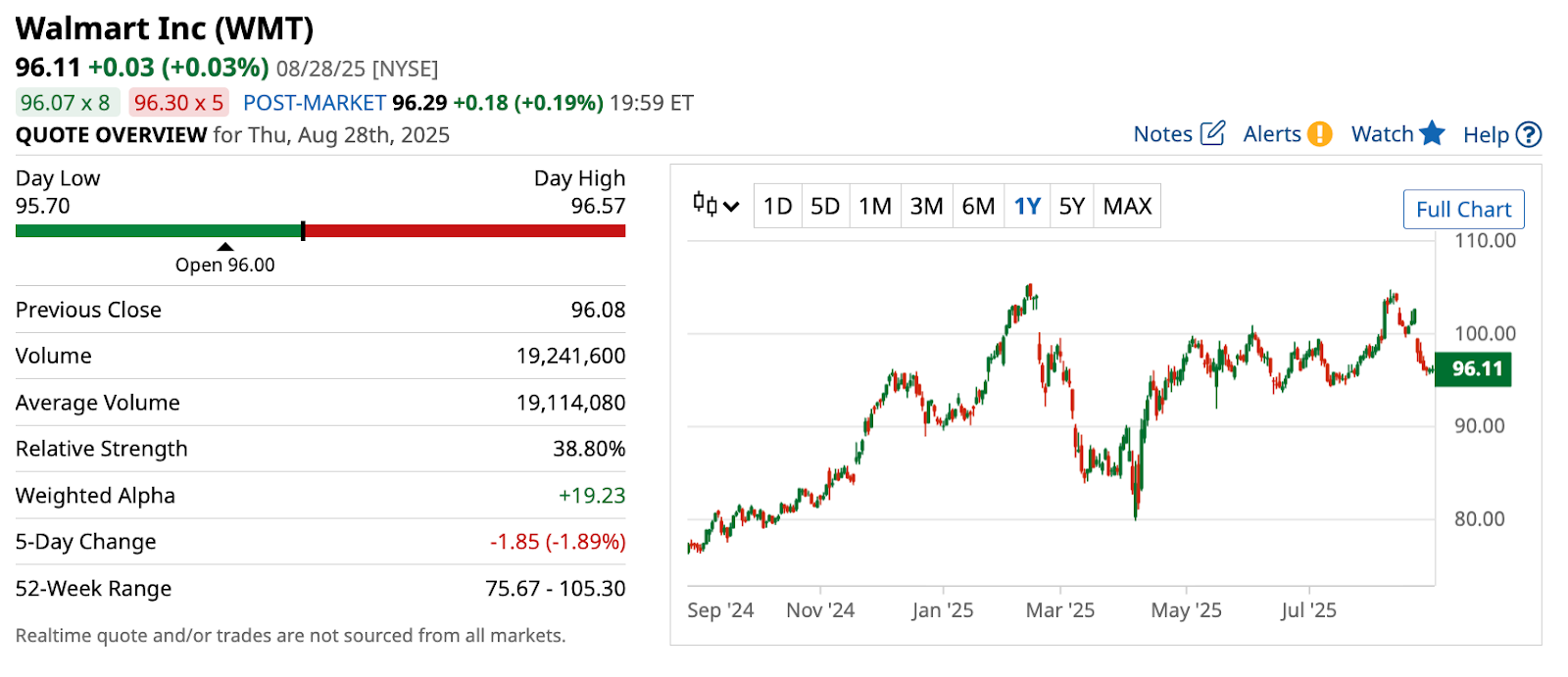
Last on my list of dividend stocks for a lifetime of income is Walmart Inc., another company that doesn't need any real introduction. (In the highly unlikely event you don’t know), Walmart is a global multinational retail corporation that operates a chain of hypermarkets, discount department stores, and grocery stores.
But you may not know that Walmart is the world’s largest private employer, with more than 2.1 million employees.
Even though Walmart is publicly traded, the Walton family owns approximately half of the outstanding shares.
The company recently released its second-quarter financial report. Revenue grew 4.8% from the same period last year to $177.4 billion, and net income grew 56.1% to $7 billion.
Walmart currently pays $0.91 per year in dividends, reflecting a 0.95% yield.
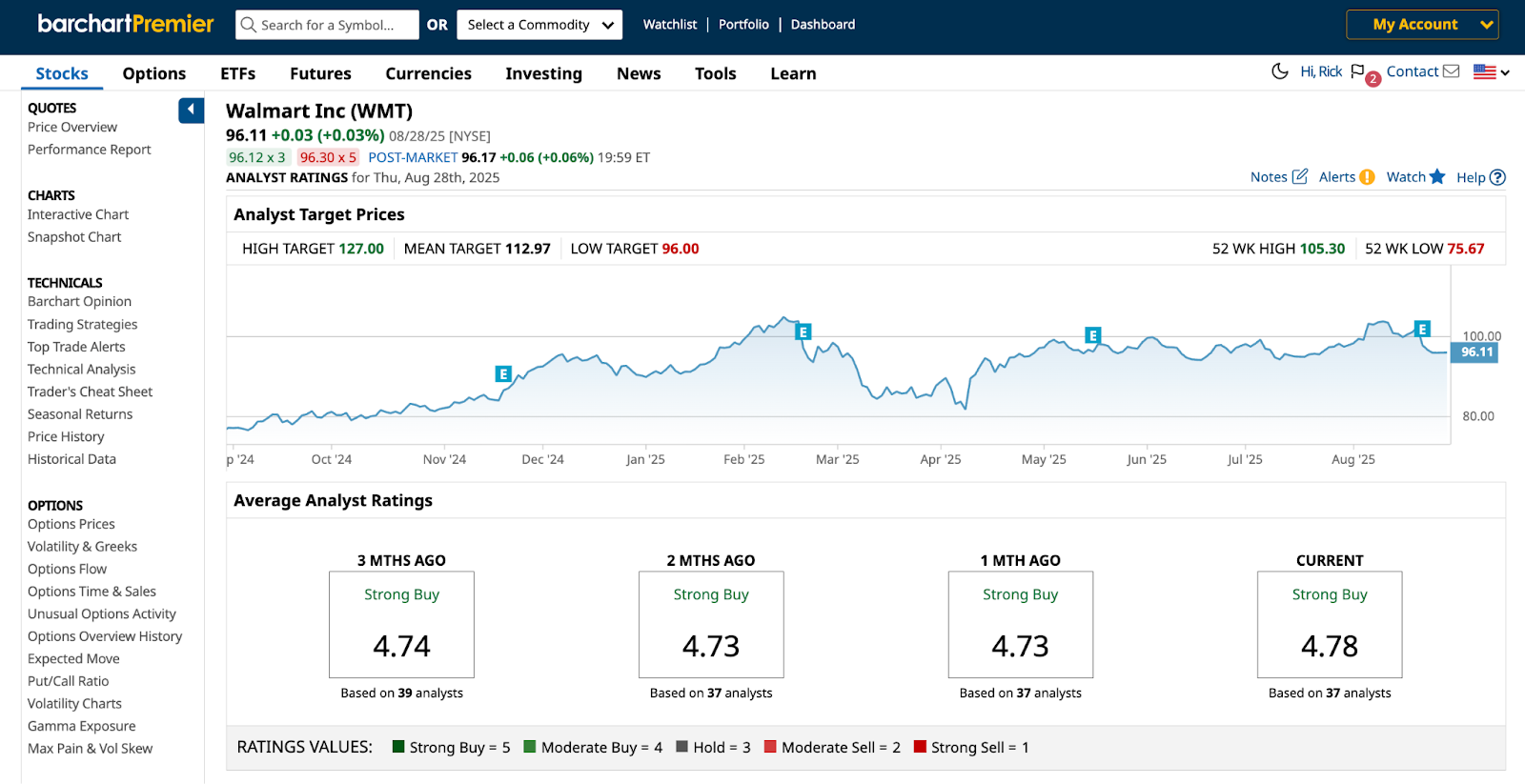
A consensus among 37 Wall Street analysts rate Walmart stock a “Strong Buy”, consistent and increasing over the past three months, suggesting that Walmart’s outlook is improving. If it reaches its high target of $127, then the stock price would have grown 32%.
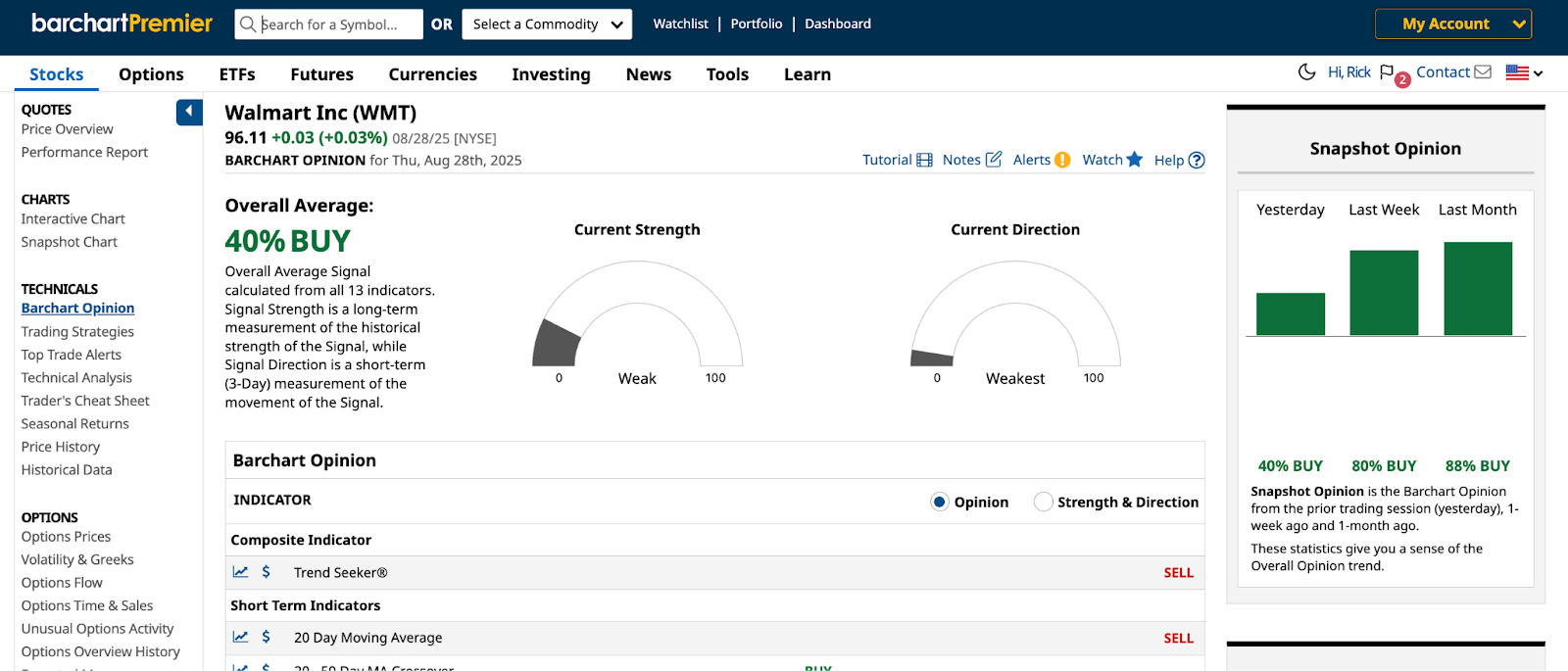
Short term technical traders will note that Barchart Opinion rating is a 40% buy, with “Weak” strength, and “Weakest” direction.
Final Thoughts
If history is any guide, Dividend Aristocrats have earned their reputation as long-term wealth builders. By steadily raising payouts through recessions, rate cycles, and market shocks, they’ve shown investors the power of disciplined dividend growth.
The five companies highlighted that span steel, healthcare, finance, beverages, and retail, all offer both resilience and analyst conviction. Some carry modest yields, others boast stronger growth prospects, but all have decades-long records of rewarding shareholders.
For investors seeking income that doesn’t depend on today’s interest-rate environment, while having the potential for capital appreciation on top, Dividend Aristocrats remain a class worth owning.
On the date of publication, Rick Orford did not have (either directly or indirectly) positions in any of the securities mentioned in this article. All information and data in this article is solely for informational purposes. For more information please view the Barchart Disclosure Policy here.